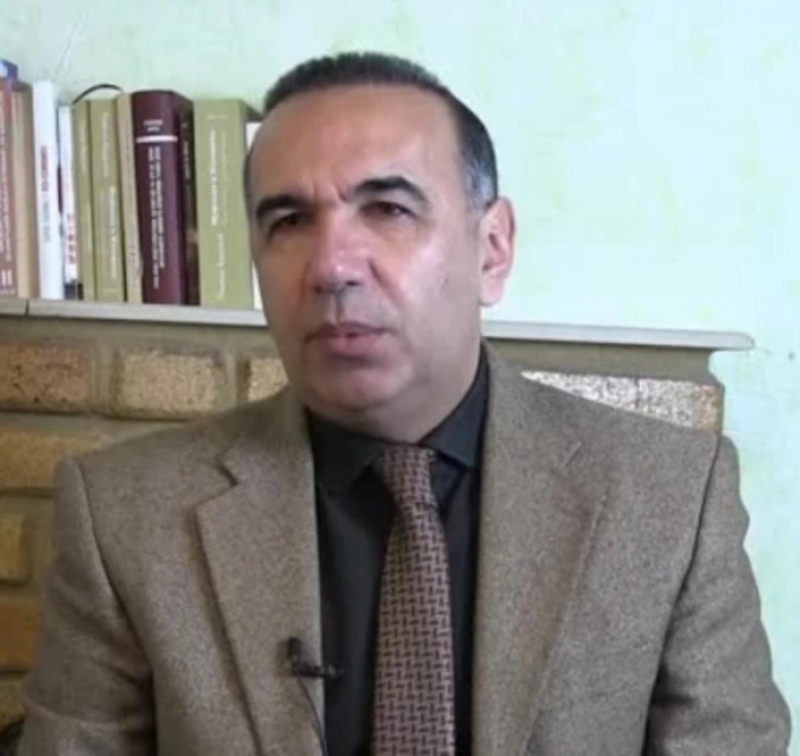
Question: Mammad Bey, as you know, President Ilham Aliyev annulled the Decree dated December 26, 2005, on Approval of the Regulations on the Tariff (Price) Council. According to a new decree signed by the President, the status of the Council as an executive body has been abolished, and its secretariat operating on a voluntary basis has been established. What does this mean and what will change in the activities of the Council?
 Answer: In fact, the functional activity of the Tariff Council was the secretariat. It is not a place where high-level decisions are made, but a place where decisions are interpreted and justified. In any case, serious people have accepted it like that. This decree gives the impression that there have been price increases due to the alleged active role of the Tariff Council in the decision-making process. Sometimes they did it spontaneously. With this decree, nothing will be left to their hopes, and they will act only as a secretariat, delivering and presenting decisions.
Answer: In fact, the functional activity of the Tariff Council was the secretariat. It is not a place where high-level decisions are made, but a place where decisions are interpreted and justified. In any case, serious people have accepted it like that. This decree gives the impression that there have been price increases due to the alleged active role of the Tariff Council in the decision-making process. Sometimes they did it spontaneously. With this decree, nothing will be left to their hopes, and they will act only as a secretariat, delivering and presenting decisions.
Question: There are those who comment on this step that the Tariff Council will no longer be able to make independent decisions. Do you think that the Tariff Council has made independent decisions so far?
Answer: The real role of the Tariff Council in the decision-making process would be possible only if this body made a decision against at least some of the letters of recommendation submitted to it. Have you encountered such an experience that the Tariff Council did not accept the price increase proposals sent to that body and made a completely different decision? There has been no such case. This already gives a full impression of the specific functions of this institution.
Question: In general, is there a need for an institution like the Tariff Council in the country? How right is the government's goal to regulate and intervene in prices? Are there such institutions in normal, developed countries?
Answer: It is not wrong to have an organization that carries out similar activities. Because the Tariff Council operates in two types of price regulation: on the one hand, it regulates the prices of strategic products and services; on the other hand, it regulates the prices of scarce goods. However, due to the ineffectiveness of this regulation, the Tariff Council has lost its authority. If this body could really anticipate the results of price regulation and take steps with in-depth analysis and research, then the activity of the Tariff Council as an important institution would be considered more important. Because the Tariff Council has put the interests of producers at the forefront by raising tariffs on state-owned companies instead of protecting consumers from severe market pressures. This gives grounds to say on what criteria it has made its decisions.
Question: One of the main topics of discussion in recent days is the appeal of private transport companies to the Tariff Council to increase fares. However, the Tariff Council said that this issue is not on the agenda at the moment. But there is a trend in Azerbaijan. When applying to the Tariff Council, most services justify this by saying that the profit does not cover the cost. These arguments also raise suspicions of corruption. How can it be explained? And when raising the prices of many services, the Tariff Council usually takes into account the arguments of applicants and does not pay much attention to the social situation of the population?
Answer: You know, prices do not cover the cost because the costs are many times higher than the real prices and estimated costs. Because there is corruption. Because tenders are won by certain companies. Procurement is provided to both contractors and subcontractors. Because these organizations pay less to the state budget and receive more subsidies from the state budget. Because in these natural monopolistic companies, the number of managers and the cost is higher than the value creation process. Because public funds are wasted in the name of service costs, etc. In that case, no matter how much you earn, you will not be able to cover your expenses. Therefore, first of all, it is necessary to remove the country's natural monopolies from the "comfort zone".
Question: Finally, what would you suggest regarding pricing policy?
Answer: I suggest that the Tariff Council be composed of completely independent appraisers and specialists. They should not consider themselves government officials. They should not consider themselves employees of the notary office in the decision-making process. They should have the courage to say "no" to the letters sent by state companies with a serious justification. Most importantly, they should demand reports from companies that offer tariff increases for goods and services. They should get acquainted with the reasons why their profit does not cover their expenses. Let They should get acquainted with the Opinions of the Chamber of Accounts on the budget execution of previous years, and then think about price increases. A more important aspect is that they should conduct public hearings and expert assessments to achieve public participation in tariff increases.













Leave a review